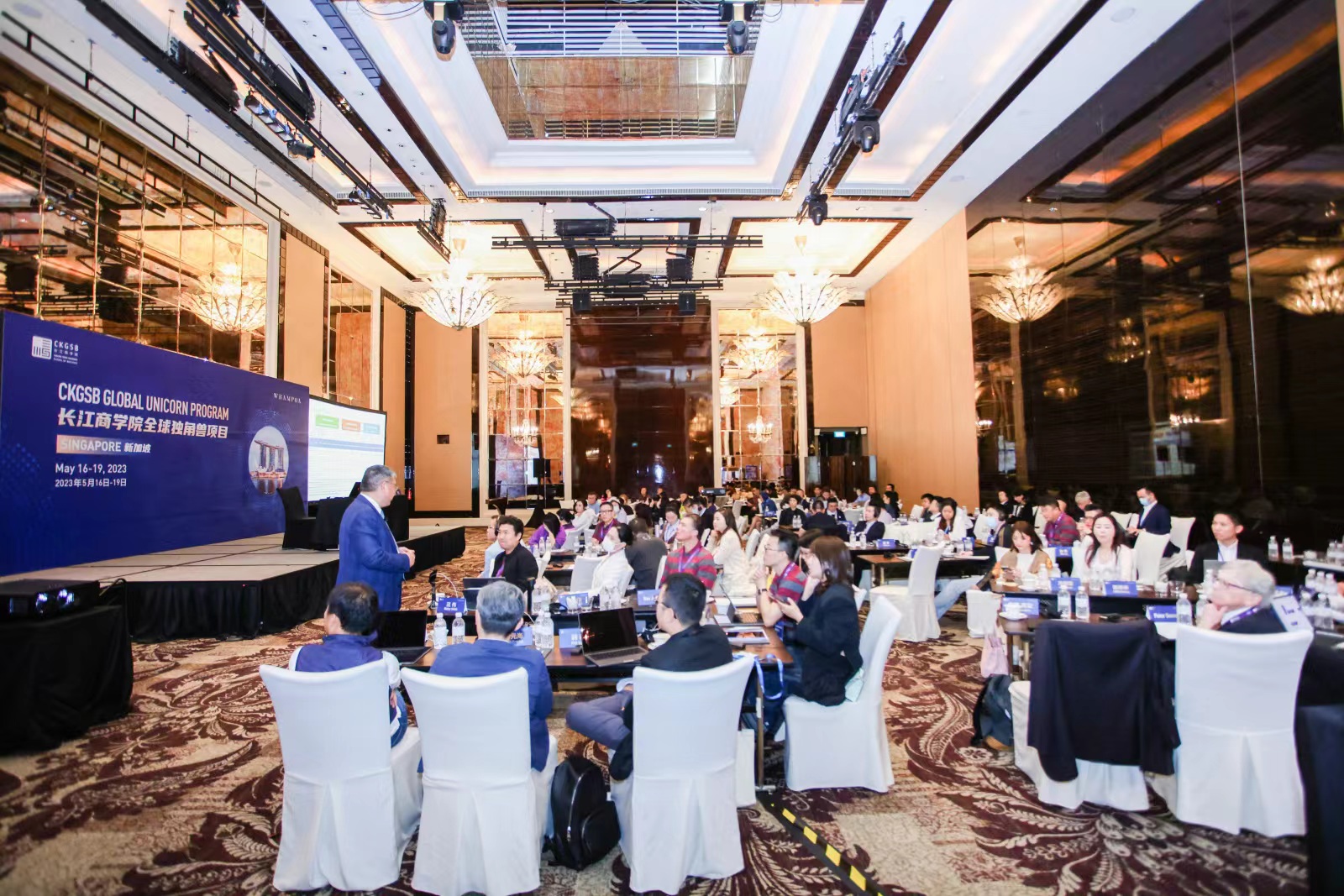
Singapore, May 19 2023 – Cheung Kong Graduate School of Business (CKGSB) partnered with Whampoa Group to successfully organize the Global Unicorn Program in Singapore on May 16-19. The program comprised of the half-day Asia Business Summit, an exclusive in-person gathering of senior government, business and opinion leaders who shed light on innovation and investment within the Regional Comprehensive Economic Partnership (RCEP), while the three-day program convened 94 entrepreneurs and investors from eight countries to explore opportunities in the RCEP market and the necessary mindset, tools and network to leverage them.

15 prominent speakers from China, Singapore, Indonesia, Japan, Korea and India, gathered at the summit to address macroeconomic trends and micro-level challenges faced by entrepreneurs and investment leaders in RCEP. The event attracted over 200 senior business leaders representing multinational corporations, government departments, leading think tanks, media, and CKGSB programs.
CKGSB Associate Dean and Dean’s Distinguished Chair Professor of Finance Li Haitao kicked off the summit by emphasizing the importance of RCEP, which accounts for nearly a third of the world’s population and almost 30% of global GDP, making it one of the world’s most dynamic and fastest-growing regions, particularly in light of global uncertainties.
In her welcome remarks, Amy Lee, Co-founder and Chairperson of Whampoa Group, acknowledged that “whilst we come from different jurisdictions, we face the same issues—geopolitical, supply and sustainability issues.”
She emphasized that the two organizations have come together in Singapore to realize our respective potentials and work together to find solutions to these challenges.
During his keynote speech, Xiang Bing, CKGSB Founding Dean and Professor of China Business and Globalization, highlighted the challenges and opportunities facing China’s economy.
Notably, he addressed concerns including an ageing and shrinking population, labor force decline, wealth inequality, and low business confidence. Meanwhile, he listed several opportunities for the world’s second largest economy, including strong economic performance, its large consumer market, a strong private sector, disruption caused by innovative technologies, and new rounds of deregulation. One of the important opportunities he emphasized for China is its close economic and trade relations with RCEP member countries. In fact, China is the largest trading partner of South Korea (since 2004), Japan (since 2007), ASEAN (since 2009), Australia (since 2009), New Zealand (since 2017). Moreover, in the past two decades, China has made notable contributions to cultivating “substantive and continued economic disruptions, evidenced by its growing number of unicorn companies, newly emerged large-scale companies and newly-minted billionaires,” all of which provide upward social mobility and opportunities for young people.
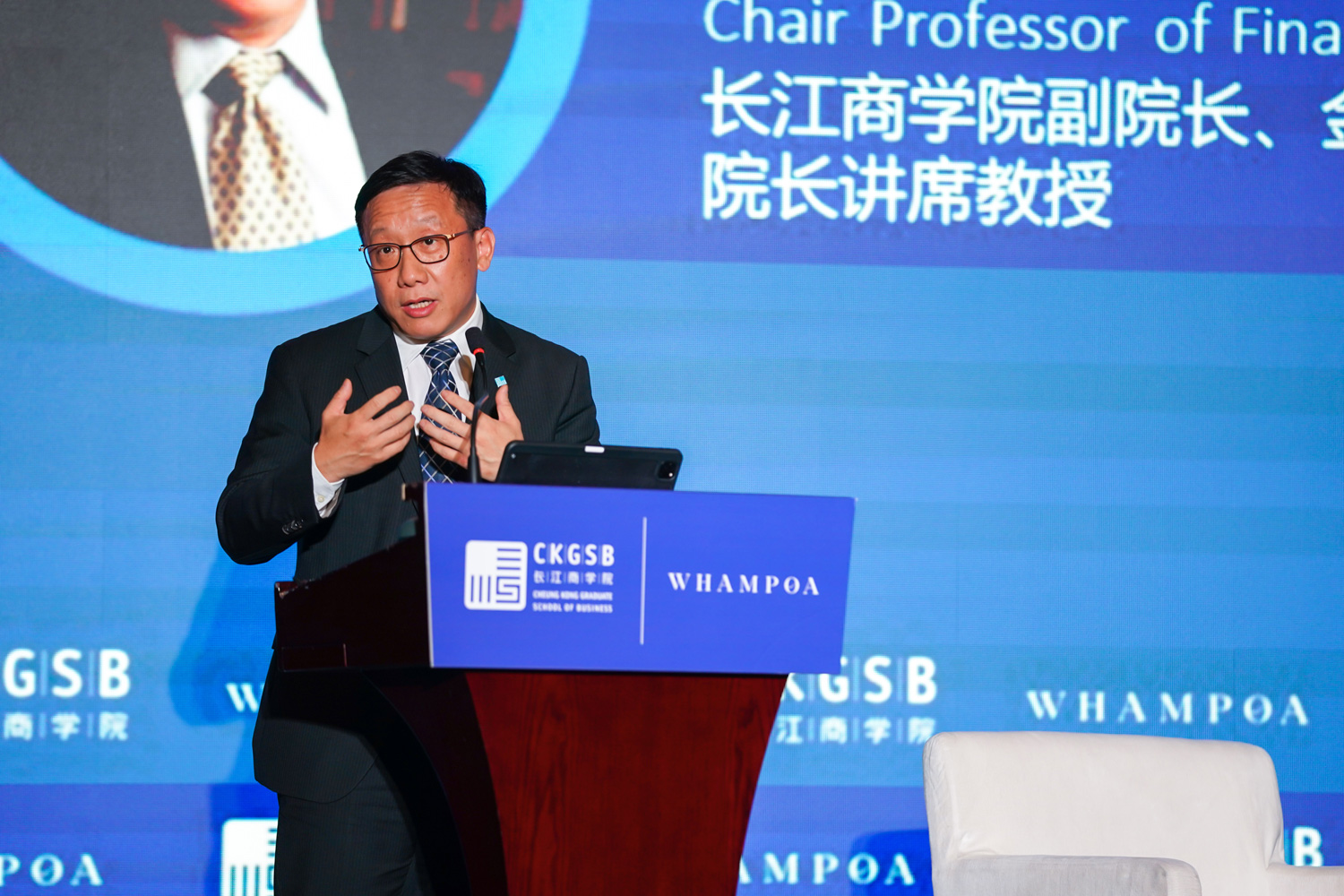
The summit featured two insightful panel discussions. The first, titled “Navigating Global Uncertainties: The Perspective of RCEP,” was moderated by Professor Li Haitao. Featured panelists included Taimur Baig, Managing Director and Chief Economist for Group Research at DBS Bank; Brian San, Executive Director, Programmes and Strategic Development, Wealth Management Institute; Katsuhiro Sato, Professor of Strategy and Finance, Waseda Business School; and CKGSB alumnus Wang Guangyu, Founder and Chairman, China Soft Capital.
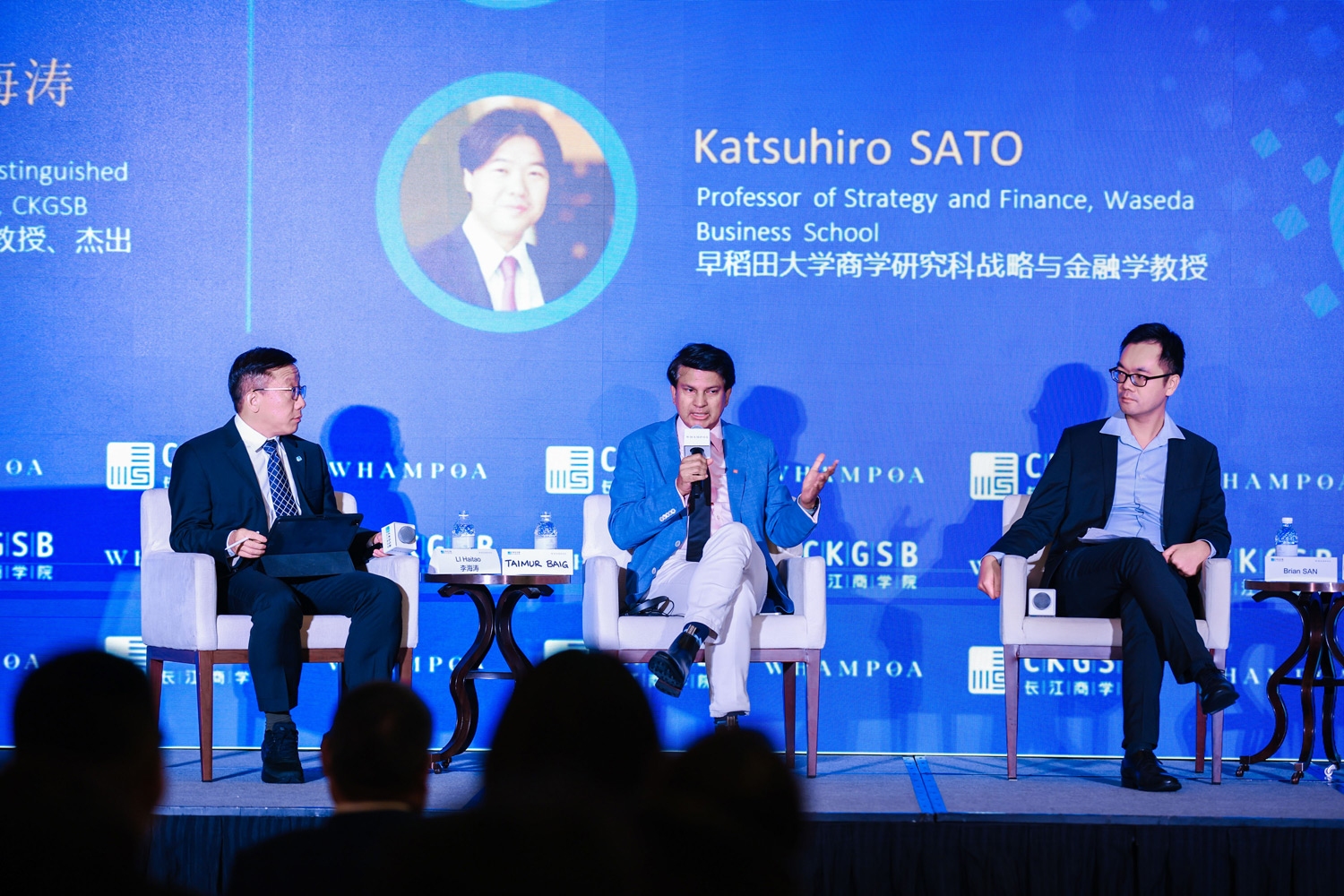
Taimur Baig from DBS Bank called on the need for the global economy to show more resilience than it has been portrayed in the markets, particularly in light of inflation coming down substantially, the favorable condition of companies’ balance sheets, and the absence of housing market collapse.
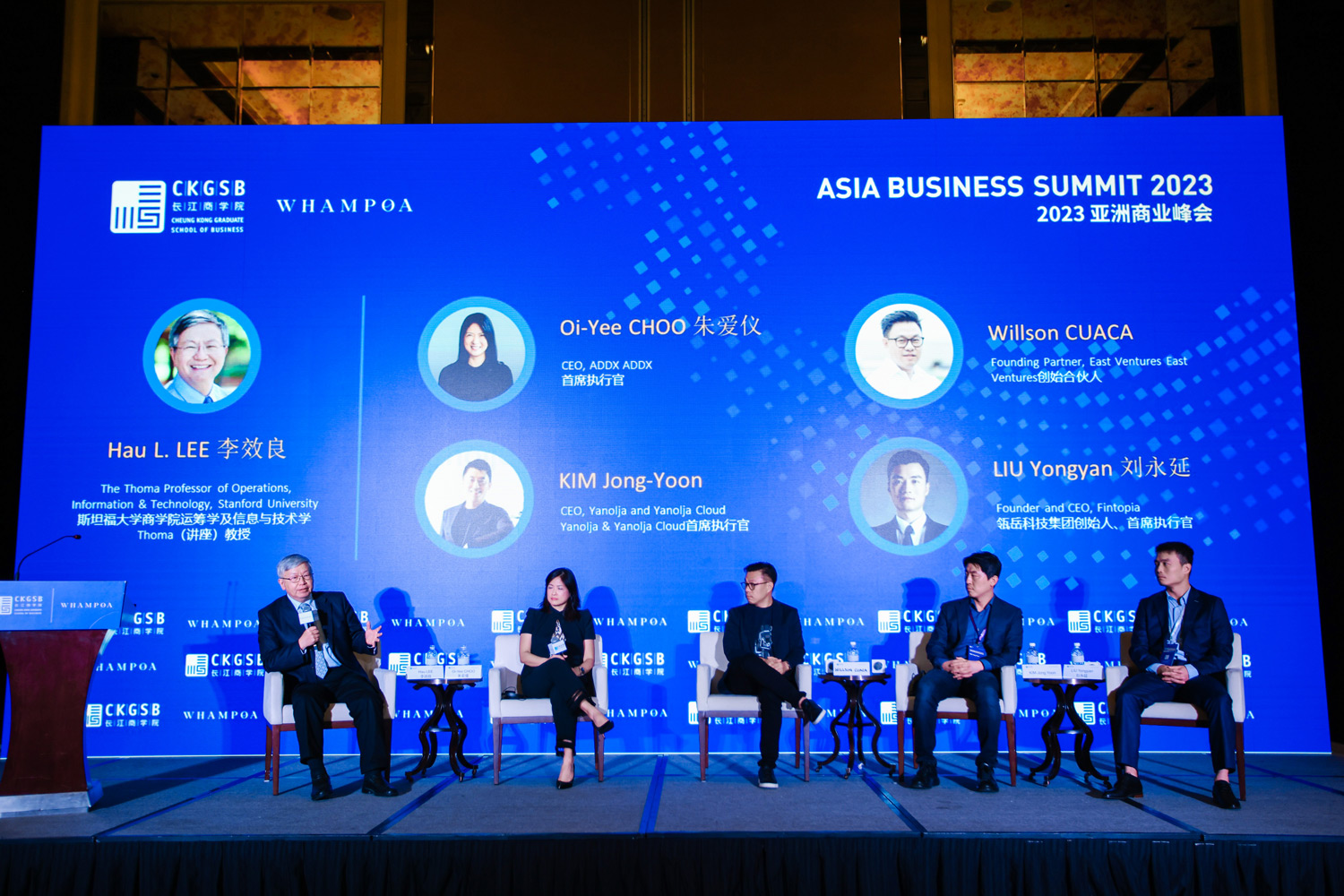
The second panel discussion, “Scaling Up in RCEP”, was moderated by Hau Lee, the Thoma Professor of Operations, Information & Technology, Stanford University. The panel featured Oi-yee Choo, CEO of ADDX; Willson Cuaca, Founding Partner of East Ventures; Kim Jong-yoon, CEO of Yanolja and Yanolja Cloud; and Liu Yongyan, Founder of Fintopia as panelists.
Willson Cuaca of East Ventures, the most active venture capital firm in Southeast Asia, commented on how to scale up within RCEP. He said,
“there is no way you can develop a software in one country and just expand it to another”. He suggested that an e-commerce company should impress the consumer market first and then identify local problems to address.
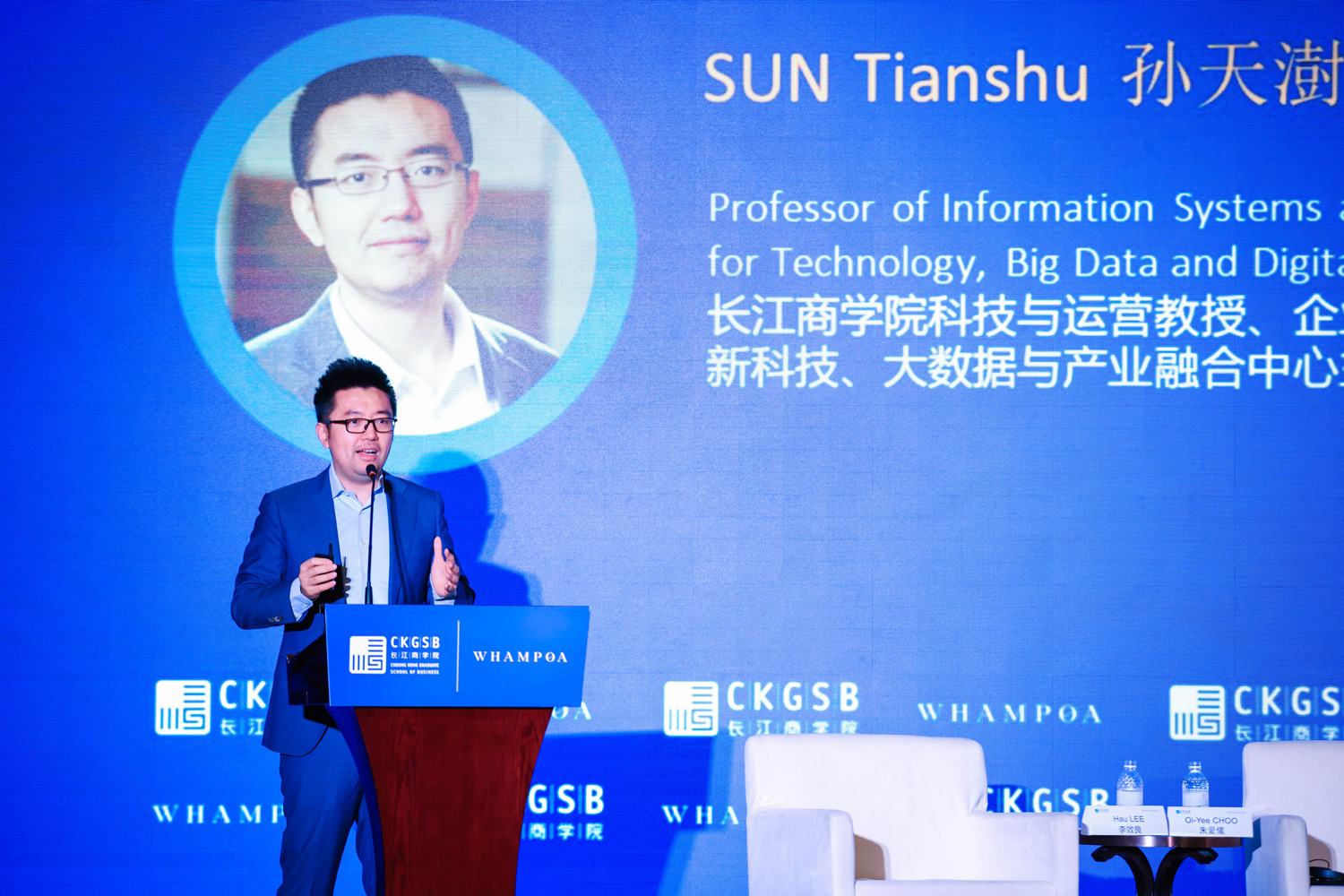
Sun Tianshu, Professor of Information Systems and Director of the Center for Technology, Big Data and Digital Transformation at CKGSB, gave a closing keynote on global digital transformation. In his speech, Professor Sun said digital transformation is the new globalization and Singapore, as well as other RCEP countries, is becoming a convergence place of the digital ecosystem from China and the US.
“Singapore is at the center of the world across all four pillars of digital transformation: digital content, digital commerce, digital enabler and digital infrastructure,” explained Dr Sun.
Following the Asia Business Summit, CKGSB and Whampoa jointly delivered the Global Unicorn Program, which convened a diverse group of 94 participants from Australia, China, Japan South Korea, Malaysia, Singapore and Switzerland, including 16 public enterprises and 30 companies ranging from Series D to Pre-IPO stage. The program was taught by world-class professors from CKGSB, Wharton and Stanford University, as well as industry leaders from across Asia. Besides in-depth interactions, it also equipped entrepreneurs, founders and venture capitalists with the necessary mindset, tools, and network to identify growth opportunities for their businesses in the RCEP market.
Professor Sun Tianshu—the program’s Academic Director—gave his observations on the digital ecosystems in the US, China and Southeast Asia, before moderating a panel discussion on unicorns in RCEP. Dean Xiang Bing, covered relevant topics on developing next-generation unicorn companies with an enhanced emphasis on global responsibility, social purpose and a long-term perspective. The course brought together business leaders, such as Idea Farm Ventures Co-founder and President (and former Wharton Chaired Professor) David Bell, Founder of Trip.com Group Fan Min, Fosun Group’s Former CEO Liang Xinjun, Chairman of 3nod Group Liu Zhixiong, E-House Founder Zhou Xin, and United Overseas Bank’s head of Group Commercial Banking and Blockchain, among others, to discuss the opportunities and challenges for unicorns.
Amy Lee from Whampoa Group spoke highly of the summit and program, and expressed her recognition of the partnership with CKGSB. “From my experience, you can’t work in silos, you can’t work in isolation,” said Lee. “Looking in the region, there is no better partner for what we want to do (this particular school) than with Cheung Kong Graduate School. We are so complimentary.”
CKGSB’s next Global Unicorn Program will take place in Seoul, South Korea, on September 12-15, 2023, featuring exclusive opportunities to meet 100+ global VCs, scaling start-ups and corporate executives from Korea and the RCEP region. The program will also include in-depth visits to three unicorn companies—Yanolja, Toss Bank and Gen G Esport Global Academy—where participants will receive first-hand advice from the founder or president. For more details or to apply for this upcoming program, please click here.
Following the South Korea module, the Global Unicorn Program will take participants to Milan, Italy, for a program on “Luxury Management: Food, Fashion and Furniture,” and to Stanford University for a program on “Frontiers in Social Innovation,” helping business leaders, innovators and investors explore meaningful change and long-term sustainability of business and society. For more information on the CKGSB program in Stanford, click here.
Link to all photos: https://www.pailixiang.com/m/album_ia3663289870.html